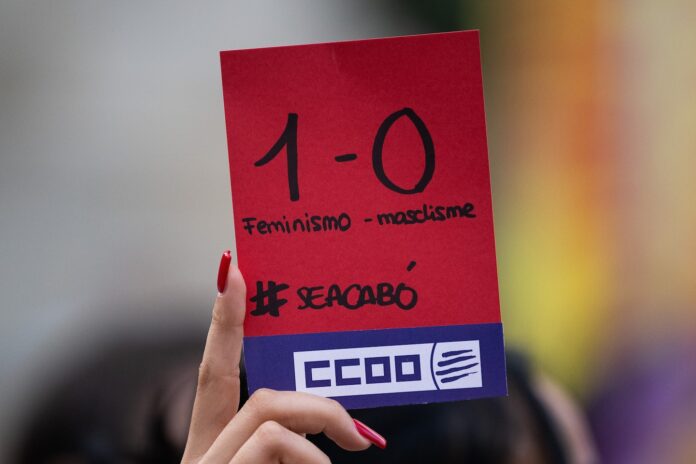The incident was an ugly coda to a tournament that had not only showcased the explosive popularity of the women’s game — nearly 2 million tickets were sold — but also shone a bright light on the rear-guard knuckle-dragging of male-led federations such as Spain’s. Rubiales has refused to apologize, much less resign. That left soccer’s ruling body, FIFA, hardly a paragon of ethics and equality, no option but to step in and suspend Rubiales for 90 days while an investigation proceeded.
That Hermoso and her teammates wouldn’t back away from their complaints about Rubiales is another sign of the continuing power shift in women’s soccer. Spain’s lavishly talented team entered the tournament following a year-long battle during which several national team members had refused to play for coach Jorge Vilda because his “controlling behavior.” During the tournament, the Spanish players seemed to go out of their way to get out of Vilda’s way, making for a curious sideline ballet. Their message finally got through: Vilda was fired on Tuesday after his own staff had quit to support Hermoso.
Although Spain has long been a dominant power in men’s soccer, only in recent years has its women’s team been given the kind of resources it needed to compete with its rivals. That’s also been true of such national teams as those found in Colombia, Nigeria and Jamaica, which announced their presence in this year’s tournament with unexpectedly strong performances. The Colombians played like a cloud of angry bees, attacking the ball, the opposition goal and seemingly anything else that got in their way.
Maybe the Columbians were still seething about how they’d been treated in past years. Soccer commentator Melissa Ortiz complained that she had been dropped from the team in 2019 for calling out the sexual harassment and shabby treatment from macho federation bosses (and the fact that players were expected to buy their own uniforms and pay their own expenses). At this World Cup, FIFA was still so concerned about players not being compensated by their federations that it made bonus payments directly to players’ individual bank accounts to ensure they got the money they had earned.
True, the outrage that followed the kiss overshadowed the failure by the U.S. team to reach the quarterfinals. Yet in some respects, it was the American women who led this revolution and then passed that ball to others. Recall that players on the U.S. Women’s National Team had to sue U.S. Soccer for the privilege of being paid the same as the U.S. men’s team, despite having won multiple World Cups and Olympic gold medals.
In the ensuing struggle, the leadership of U.S. Soccer collapsed and fell; the organization is now led by Cindy Parlow Cone, a former USWNT player. This is now a multigenerational takeover: From the days of Julie Foudy and Mia Hamm to Megan Rapinoe and Alex Morgan today, the American women have always been a steel-willed, supportive group when it comes to their sense of fair play. Had Rubiales tried his act with any of them, it’s likely he would have been picking himself up off the turf.
Having won all of that off the field, though, the U.S. women this year disintegrated on the field, beset by injuries, inexperience and the lack of a clear game plan. Other one-time powerhouses faded, too. The enormous gap between regions that once existed in resources and talent is rapidly diminishing. Remember the United States crushing Thailand 13-0 in 2019? In this year’s tournament, the American women struggled to get by Vietnam, one of Asia’s rising teams.
Yet all this represents a triumph for women in the sport. The chances came earlier in the United States thanks to Title IX, of course; and then in Scandinavian countries, where gender equality is part of the social fabric. England’s soccer federation banned women’s football from its pitches in 1921, but with Premier League teams now pouring money into the women’s game, England finally has a national team equal to its name. The Barcelona’s women’s club team set an attendance record of 91,648 for a match last year.
In the United States, after a number of shaky starts by women’s pro leagues, the National Women’s Soccer League is now attracting serious money. Investment firm Sixth Street is putting up $125 million to launch a franchise in San Francisco, and its board will include former USWNT players Brandi Chastain, Leslie Osborne, Danielle Slaton and Aly Wagner.
Having helped established women’s soccer as sporting entity, they are now getting a chance to own it. That’s equity in every sense of the word.



